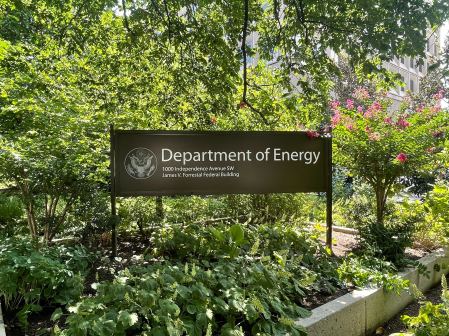Although the Energy Department’s Advanced Research Projects Agency has established and put effective management controls in place, the agency failed to obtain audits for two of its projects and racked up questionable costs for another, according to a report from the agency’s inspector general.
Federal agencies are required to obtain an audit for any project that involves more than $500,000 in expenditures to a company within a year. The Energy Department failed to conduct such an audit, which must be conducted by an independent auditor, for two of the eight projects evaluated by the IG.
One of the projects that did not have an audit also had questionable expenses, the report said. The project, which totaled $6.6 million over three years, ended last November.
According to the IG’s report, $547,000 of the project costs were questionable.
“[The recipient] claimed about $424,000 in questionable project costs consisting of in-kind cost-share in the form of labor, fringe and indirect expenses,” the report said. “The recipient claimed about $171,000 as in-kind labor based on the difference between below-market rates paid to five senior team members working on the project and market rates paid to other internal personnel with comparable positions.”
The report said that one of the main reasons for the questionable costs was a lack of communication.
“We found that the issues we observed occurred for a variety of reasons,” the IG’s report said. “With respect to the questionable ink-kind cost-share contributions, it appears that there had been a misunderstanding and a lack of communication between ARPA-E and the recipient as to the final position or determination regarding allowability of such cost-share methods.”
However, the IG’s report did find that federal program directors did routinely make the site visits required by law. In addition, the directors were found to have conducted web conferences between site visits.
The IG recommended that ARPA-E ensure that when recipients seek in-kind cost-share opportunities, that the recipients submit a written request to the contracting officer. The agency should also implement a process to ensure that the audits are requested, tracked and reviewed.
The report also recommended the agency resolve the questionable costs discovered. According to the management response, the agency has already addressed implementing a process to track and review audits, and is in process of addressing the questionable costs.
The ARPA-E program was modeled after the Defense Advanced Research Projects Agency and created in 2007 with the passage of the America COMPETES Act.
With ARPA-E, recipients can range from start-ups to universities. The recipients interact with the agency through a cost-share platform that involves the recipient to contribute back to the agency a percentage of the total project costs – the contribution back can occur through a financial payment or through in-kind contributions.






